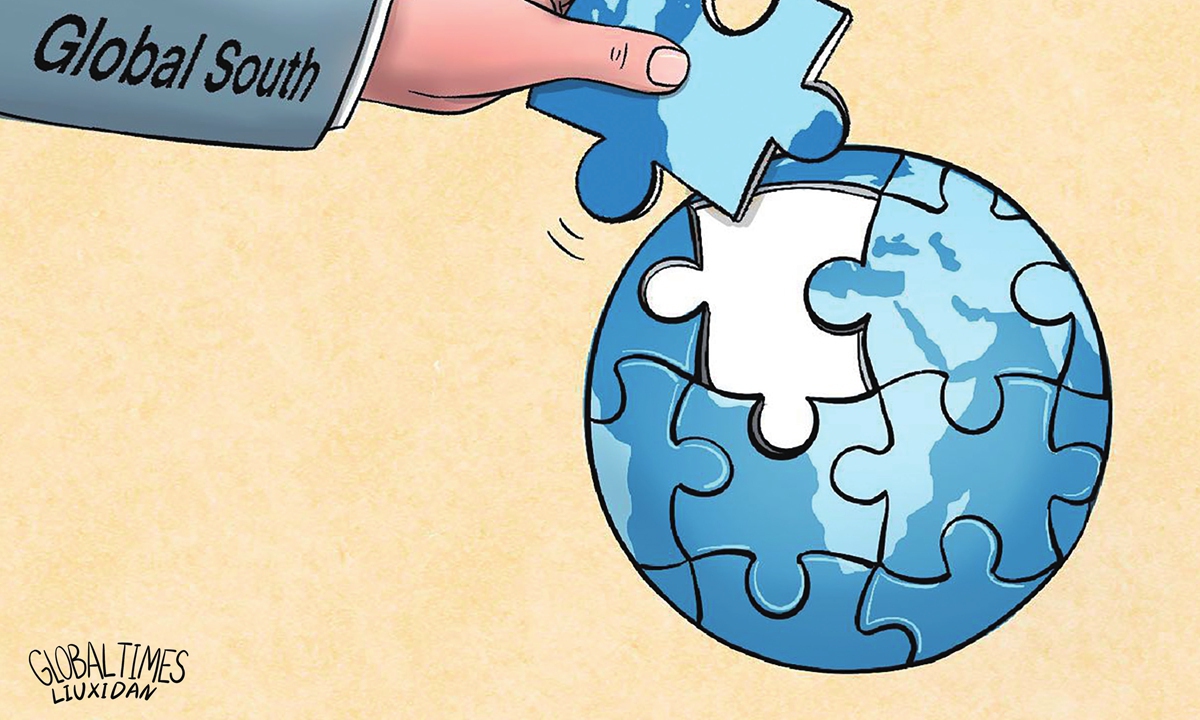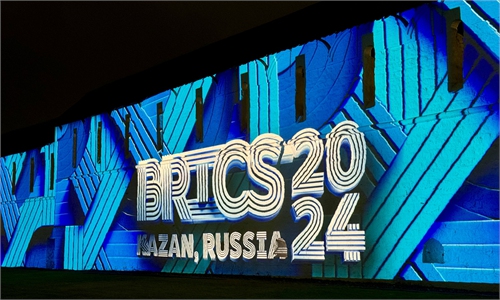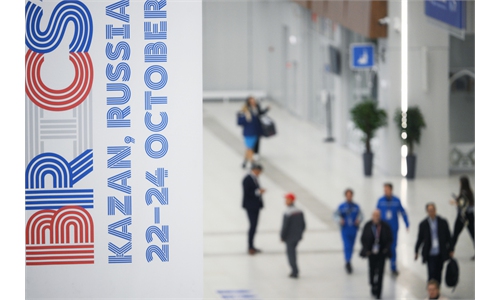
Illustration: Liu Xidan/GT
The BRICS Summit has just concluded, and the G20 Summit is soon to be held in Rio de Janeiro, Brazil. The back-to-back occurrence of the two major multilateral summits not only signals the potential for further growth in the cooperation mechanisms of developing countries, but also raises concerns among some developed nations. A Western scholar has written a comparison of the two summits, arguing that "the US is losing the Global South" and that the BRICS expansion is "a trendy, Sino-centric performative display of multipolarity," attempting to stir up great-power competition and institutional struggles in global governance. In fact, while these statements seem to express dissatisfaction with China's growing partnerships, they on the other hand reflect Western countries' unease about the rising influence of the Global South.
The BRICS Summit marks the first full meeting of the group since its historic expansion in January 2024. Leaders from the member countries engaged in detailed discussions on how to strengthen cooperation in the face of global challenges and promote the creation of a more just and equitable international order. In contrast, the G7 has adopted a more conservative approach to reforming the international order. Some Western nations believe that the economic growth of developing countries heavily relies on support from the West, and they remain skeptical about the possibility of win-win cooperation between developed and developing nations. This narrow perspective has contributed to the West's increasingly adversarial stance toward BRICS.
In the face of numerous challenges to global governance, the differences in positions between developed and developing countries on many international issues have become increasingly evident, presenting unprecedented challenges for the reform of the international order.
Faced with these differences and disagreements, countries are recognizing that building a more open and inclusive international order is becoming an irreversible historical trend. How to incorporate the positions and attitudes of more developing countries into global governance reform has become a critical issue for the G20 which needs to be addressed.
Since the BRICS expansion, the combined population of the "Greater BRICS" now accounts for nearly half of the global population, and its total economic output, measured by purchasing power parity, has surpassed that of the G7. As an important platform for cooperation among emerging markets and developing countries, the BRICS mechanism provides crucial support for member countries to optimize resource allocation and share development opportunities. This not only offers significant development opportunities to an increasing number of developing countries, but also further strengthens their voice and influence in the global governance system.
Behind the expansion of BRICS and the rise of the Global South is the growing power of developing countries and the practical need for diversification of the global governance system. Whether it is responding to climate change, narrowing the gap between rich and poor or promoting sustainable development of the global economy, developing countries will play a more active role in global governance, thus pushing the international order to develop in a more just and reasonable direction.
Moreover, global cooperation needs to be more inclusive and representative. Compared with developing countries' efforts to enhance the diversity of global discourse, the attempts of the US and Europe to establish cooperation mechanisms under hegemonic discourse are extremely improper. With the growing momentum of the BRICS countries, there are voices emerging in the US that the G20 Summit should be exerted to offset the influence of the BRICS Summit. Instead of criticizing China and other BRICS countries, the US and some Western countries should seriously consider the G20's original intention, that is, to solve global problems and accommodate diverse voices.
The G20, as an important platform for global economic cooperation, should play a more active role in addressing global challenges, such as food security, climate change, financial stability, public health, among others.
The continuous development of the BRICS cooperation mechanism is definitely not a "political performance." It is the unanimous desire of all developing countries to have their voices heard by the world. For some developed countries, only by learning the way of win-win cooperation based on mutual respect with developing countries can they truly become a positive contributor to international order and the global governance system.
Ling Shengli is director of the Institute of International Relations at China Foreign Affairs University. Li Ruoshui is a research assistant of the Institute of International Relations at China Foreign Affairs University. opinion@globaltimes.com.cn



